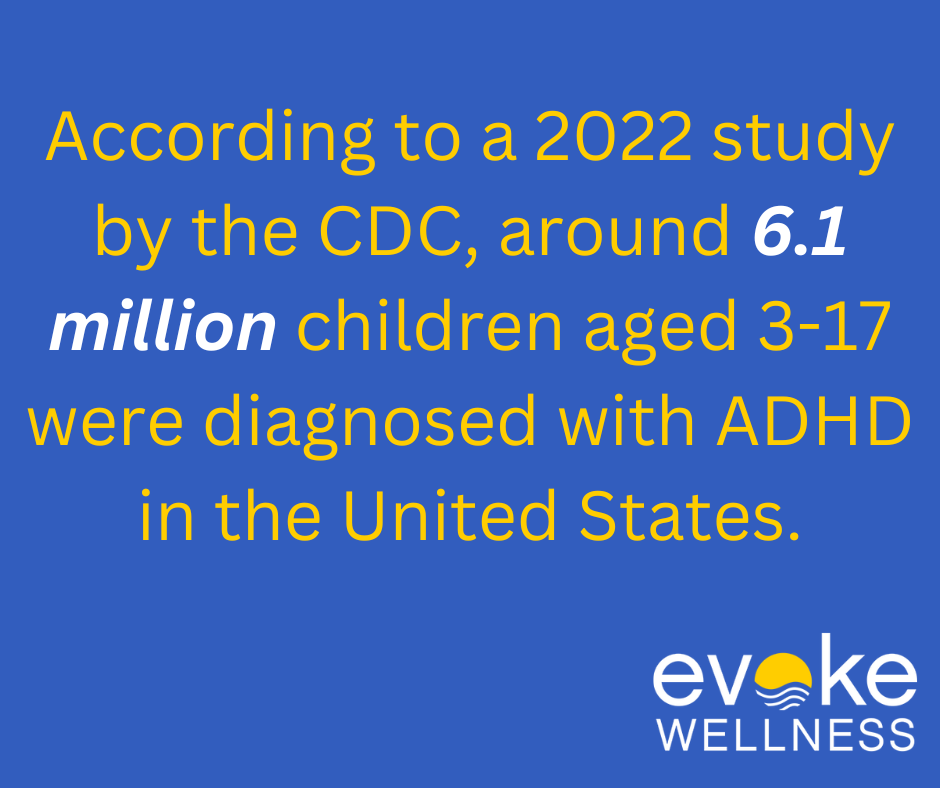Have you ever wondered how Adderall affects people with ADHD? As someone diagnosed with this condition, you may have questions about how this commonly prescribed medication works. In this article, we’ll explore the effects of Adderall on the ADHD brain and what you can expect to feel when taking it. We’ll cover:
- How Adderall impacts focus and attention
- Common physical and emotional effects
- Potential side effects to be aware of
Let’s dive into the world of Adderall and ADHD. Call us at (866)429-2960 today or reach out online.
What is ADHD?
Attention Deficit Hyperactivity Disorder (ADHD) is a chronic neurological condition affecting around 6.1 million children annually in the US. It impacts focus, attention, decision-making, energy levels, and impulsivity.
Core Symptoms
- Inattention: Difficulty sustaining focus on tasks or activities.
- Hyperactivity: Excessive restlessness and fidgeting.
- Impulsivity: Acting hastily without considering consequences.
Treating ADHD
ADHD symptoms need adequate treatment to prevent issues like poor performance, relationship difficulties, and low self-esteem. Medications like stimulants (Adderall, Ritalin) and non-stimulants (Strattera) are commonly prescribed to increase norepinephrine and dopamine levels in the brain.
However, ADHD medications can lead to dependence and addiction if misused, necessitating comprehensive addiction treatment programs.
Some key points on current ADHD diagnosis trends:
- Boys are more frequently diagnosed than girls, at a ratio of about 2:1.
- Rates tend to be higher in adolescents compared to younger children.
- There are significant regional variations, with some U.S. states reporting rates over 15%.
The rise has sparked debates around potential over diagnosis and the role of medications like Adderall. However, greater awareness, screening, and reduced stigma have likely played a role too. Moving forward, ensuring accurate assessment and appropriate treatment remains crucial.
How Adderall Works in the Brain
Increased Neurotransmitters
Adderall is a central nervous system stimulant that works by increasing levels of dopamine and norepinephrine in the brain. For people with ADHD, this has a calming effect, helping them focus, concentrate, and control behavior.
Euphoric High for Non-ADHD
However, for those without ADHD, Adderall produces an intense euphoric high due to excessive dopamine release. This rewiring of the brain’s reward pathways increases addiction risk.
Short-Term vs Long-Term Effects
Initially, Adderall increases energy, focus and confidence. But chronic abuse leads to:
- Increased blood pressure/heart rate
- Decreased appetite/sleep
- Paranoia and hostility
- Dependence and inability to function normally without the drug
When the effects wear off, users experience a “crash” – fatigue, depression, and difficulty concentrating.
Adderall’s Effects on ADHD Symptoms
According to a 2022 study by the CDC, around 6.1 million children aged 3-17 were diagnosed with ADHD in the United States. Adderall, a stimulant medication, is commonly prescribed to help manage ADHD symptoms such as inattention, hyperactivity, and impulsivity.
Improved Focus and Concentration
For individuals with ADHD, Adderall works by increasing dopamine and norepinephrine levels in the brain. This helps improve focus, concentration, and the ability to stay on task, which are often impaired in those with ADHD.
Better Impulse Control
Another key benefit of Adderall for ADHD is improved impulse control. By enhancing dopamine signaling, the medication can help reduce impulsive behaviors, such as interrupting others or acting without thinking.
Potential Side Effects
Despite its benefits, Adderall can also cause side effects, including decreased appetite, insomnia, and headaches. It’s important to work closely with a healthcare provider to find the right dosage and monitor for any adverse reactions.
While Adderall can be an effective treatment for ADHD symptoms, it’s crucial to use it as prescribed and under medical supervision. Misuse or abuse of Adderall can lead to serious consequences, including addiction and other health problems.
Side Effects of Taking Adderall
Physical Side Effects
- Loss of appetite and weight loss
- Headaches, dizziness, dry mouth
- Dehydration, nausea
- Increased heart rate and blood pressure
- Skin discoloration and other pigment changes
According to Evoke Wellness, Adderall can have various physical side effects due to its stimulant nature. Headaches are particularly common, affecting up to 25% of users, as reported by the same source.
Psychological Effects
- Anxiety, agitation, mood swings
- Insomnia, irritability
- Hallucinations in overdose cases
- Potential for increased aggression
Evoke Wellness notes that Adderall and other ADHD medications like Ritalin can potentially cause increased aggression, especially with abuse or higher-than-prescribed doses. Managing psychological side effects is crucial during Adderall treatment.
Addiction and Withdrawal
Adderall is a highly addictive substance, and regular use can lead to both physical and psychological dependence. Quitting “cold turkey” can result in severe withdrawal symptoms like fatigue, depression, and intense cravings. According to Evoke Wellness, attempting to quit Adderall without professional help can be dangerous.
Precautions When Taking Adderall for ADHD
As someone taking Adderall to manage ADHD symptoms, it’s crucial to understand the potential risks and side effects. Stay informed and vigilant to ensure safe and effective treatment.
Dosage Monitoring
- Work closely with your doctor to find the right dosage level
- Start low and increase gradually as needed
- Never take more than prescribed – addiction is a risk
Potential Side Effects
- Decreased appetite, sleep problems, headaches, and stomach pain
- In rare cases, cardiovascular issues like increased blood pressure
- Be aware of changes and report concerns promptly
Lifestyle Considerations
- Adderall can be habit-forming, so avoid alcohol and other substances
- Stay hydrated and eat regular nutritious meals
- Maintain healthy sleep patterns for optimal benefits
By following precautions, being proactive about monitoring effects, and adopting positive lifestyle habits, you can maximize the benefits of Adderall while minimizing risks.
Professional Guidance
Working closely with a healthcare provider is crucial for safe and effective Adderall use. They can provide guidance on appropriate dosing, monitor progress, and address any concerns or side effects that may arise. Adherence to prescribed dosages and schedules is essential to avoid potential misuse or dependence.
Adderall FAQ
Common Questions
How does Adderall work for ADHD? Adderall’s amphetamines increase levels of brain chemicals like dopamine and norepinephrine, improving focus and impulse control for those with ADHD.
Potential Side Effects
- Insomnia or sleep disruption
- Appetite suppression
- Headaches from dehydration
Misuse Risks
Misusing or abusing Adderall without a prescription can lead to addiction, dependence, and serious health issues like cardiovascular problems or psychosis. Proper medical supervision is crucial.
Managing Headaches
Adderall headaches are common, often caused by dehydration or lack of sleep. Staying hydrated, getting enough rest, and following your doctor’s guidance can help prevent and manage them.
Conclusion
In conclusion, Adderall affects people with ADHD differently than those without the disorder. For you as someone with ADHD, it can help:
- Improve focus and concentration
- Reduce hyperactivity and impulsivity
- Increase productivity and task completion
While Adderall can be an effective treatment option, it’s crucial to work closely with your doctor to find the right dosage and monitor any side effects. Remember, medication is just one part of a comprehensive ADHD management plan that may include therapy, lifestyle changes, and coping strategies tailored to your unique needs.
Begin Your Journey with Evoke Wellness
If you or a loved one is considering treatment, Evoke Wellness invites you to contact us. Our compassionate team is ready to answer your questions, discuss your needs, and help you take the first steps toward recovery. At Evoke Wellness, you will find more than just a treatment program – you’ll discover a community dedicated to your wellness and success. Together, let’s embrace the journey to recovery and the promise of a new beginning. Call us at (866)429-2960 today or reach out online.



